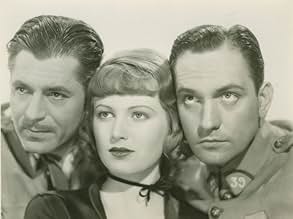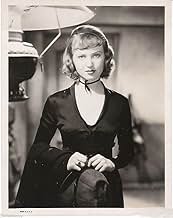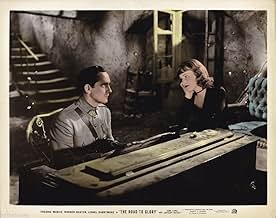Howard Hawks reused the title of his1926 movie. This one owes some debt to Raymond Bernard's LES CROIX DE BOIS, particularly in the art decoration of the battlefield scenes. Yet the story itself is not anti-war. It recounts the growing professionalism and disillusionment of of Fredric March under the tutelage of his captain, Warner Baxter, in the ruined landscape of the Great War. In the end, all he has left is his profession, as he addresses the latest batch of soldiers, tells them of the unit's glorious history, and takes a drink.
It's clearly an A movie, with a cast that includes Gregory Ratoff, John Qualen, and Lionel Barrymore borrowed from MGM to play Baxter's father and private soldier in the regiment. June Lang plays the inevitable love interest and she's pretty shaky: visually excellent, good in some line readings, poor in others. That's probably Hawks' responsibility; he was fine with strong actresses, bit so much with lesser ones. I suspect he lacked the patience.
It's a war movie, so the big battlefield scene is important, and it's beautiful shot and edited. It was also noisy, and appropriately so, second only to ALL QUIET ON THE WESTERN FRONT for its shrieking chaos. It' a good movie, but not a great one; in the end it's too conventional, willing to admit that war is bad, but well, we're going into battle tonight, so let's get on with it. Hawks had not quite reached the point where he could make the movies he wanted. In the meantime, he was a professional, doing the job he was assigned as well as he could, even if it made little sense.





































